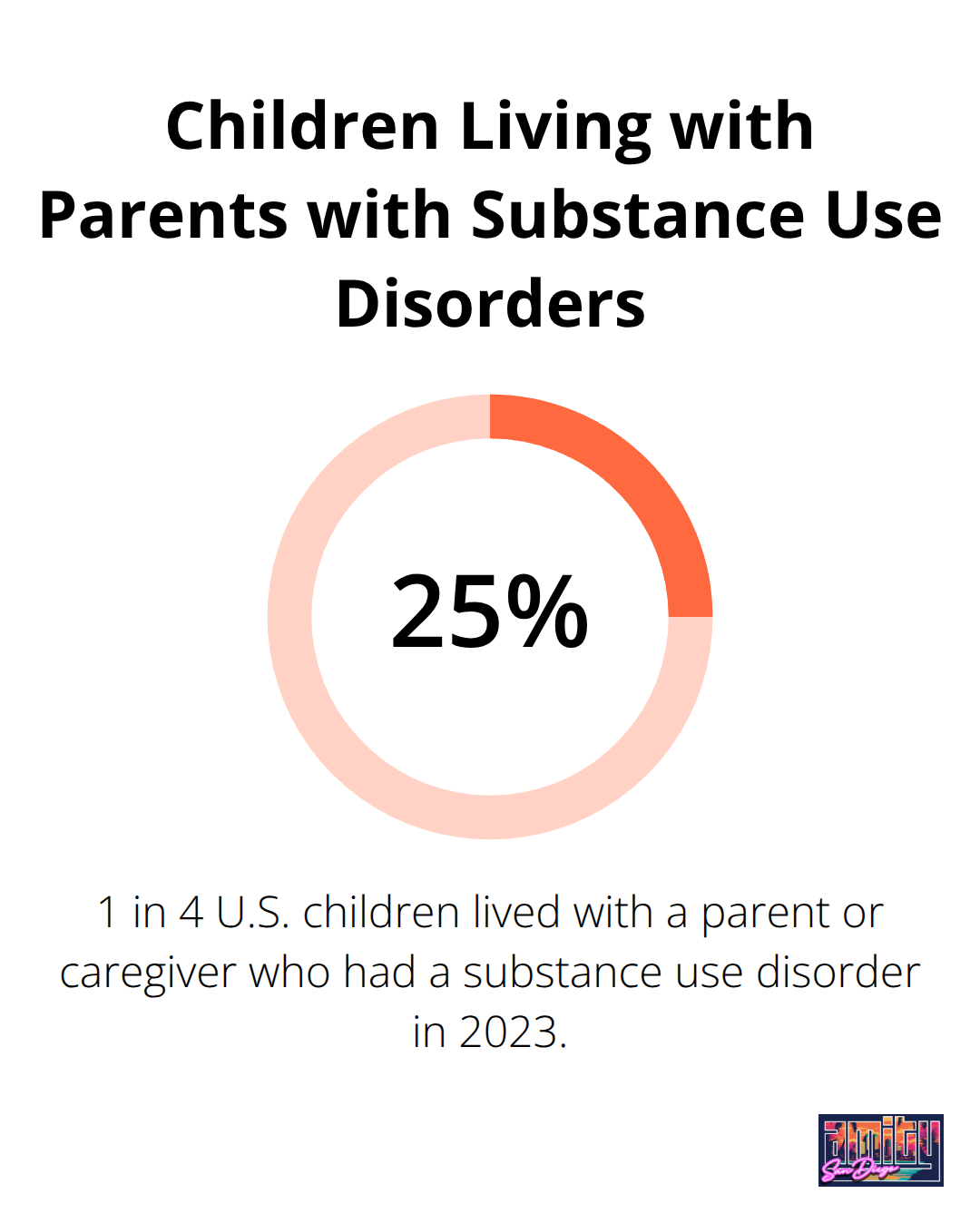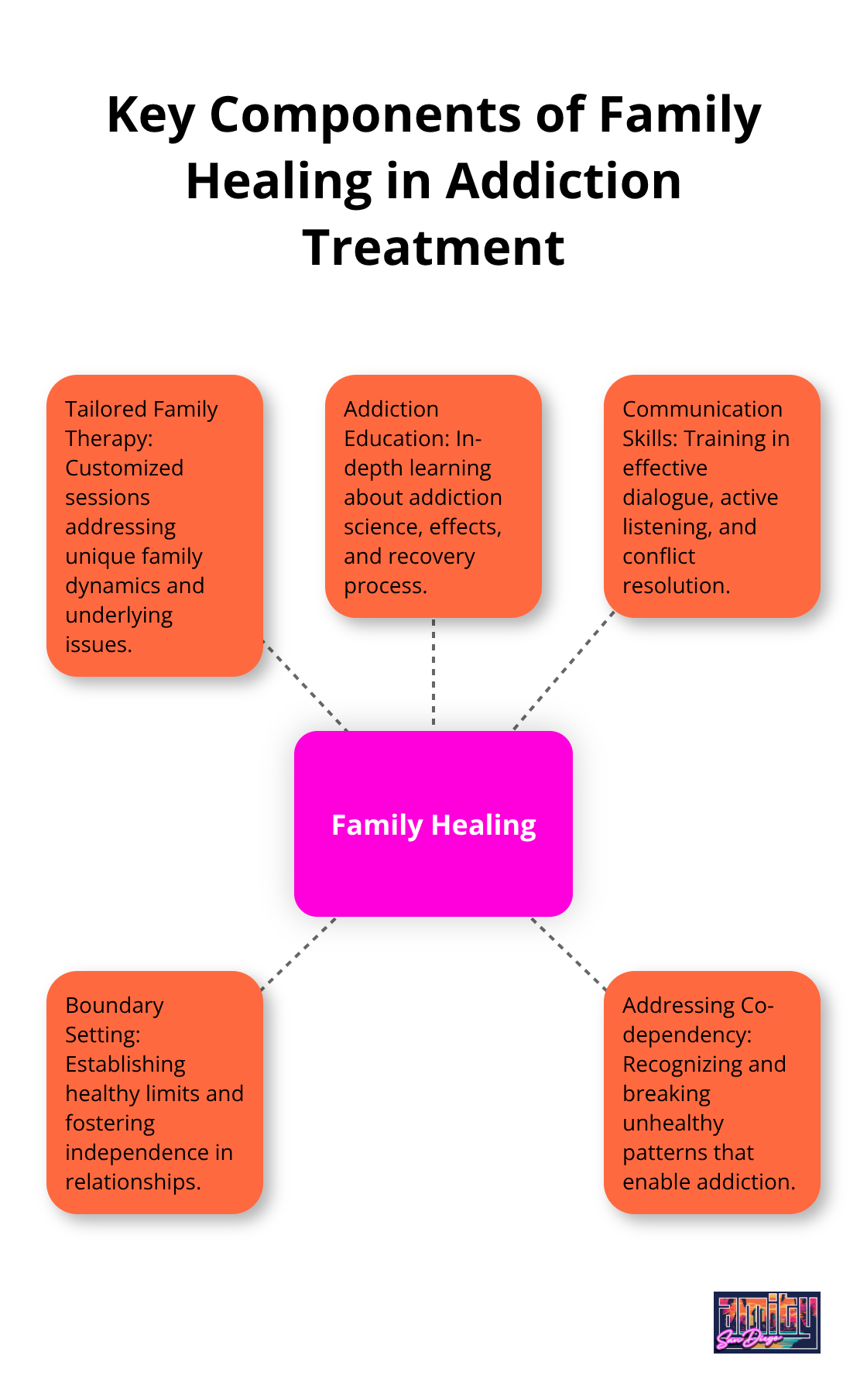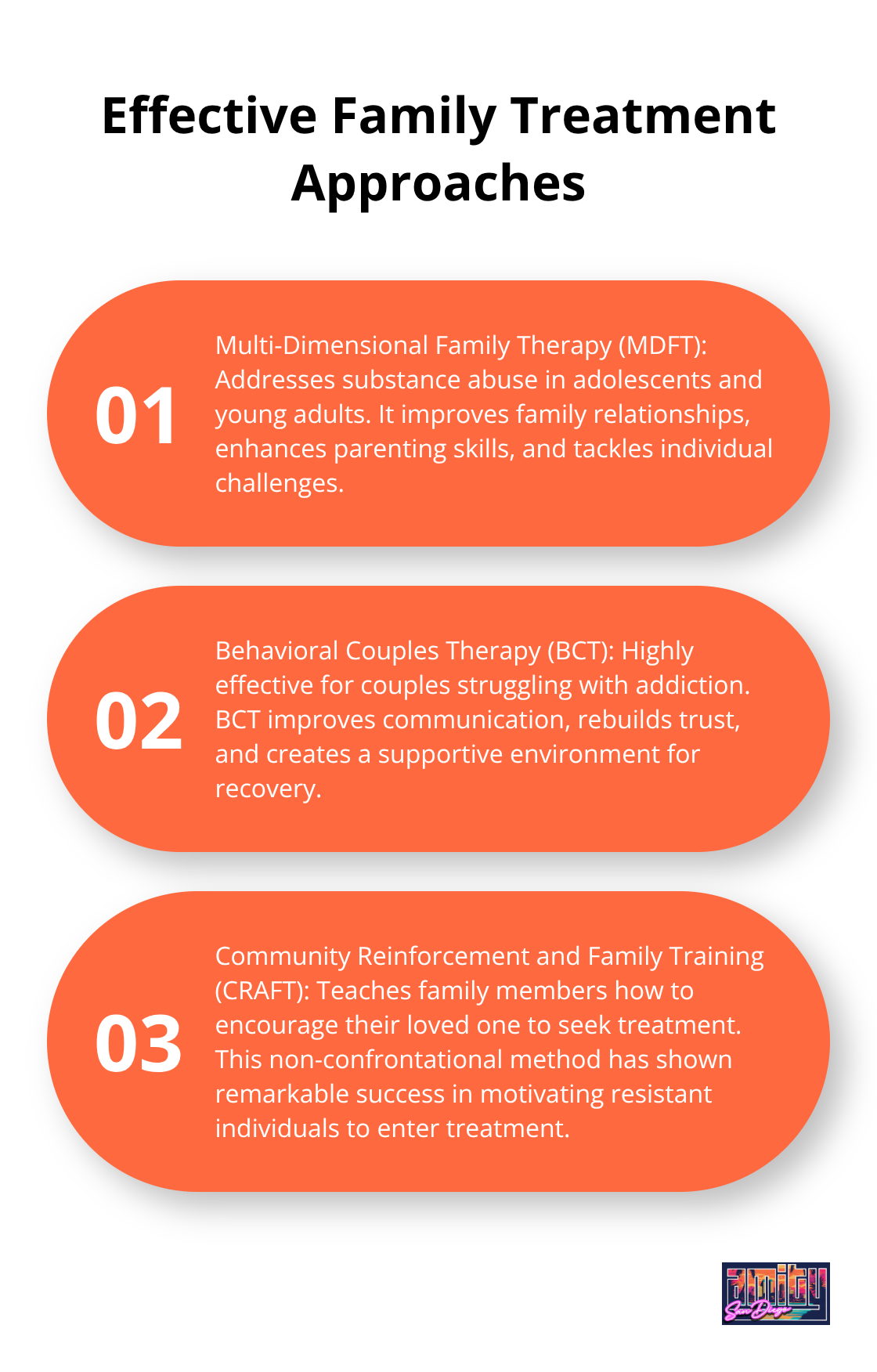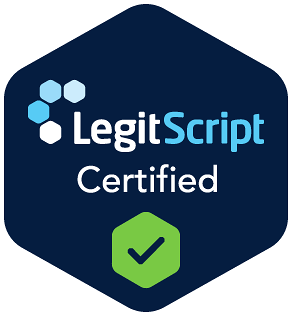At Amity San Diego, we’ve seen firsthand how addiction impacts not just individuals, but entire families.
Residential family treatment programs offer a powerful approach to healing, addressing the complex dynamics that often fuel substance abuse.
These programs provide a supportive environment where families can work together, learn essential skills, and rebuild trust.
Why Family Matters in Addiction Recovery
The Ripple Effect of Addiction
Addiction impacts more than just individuals-it affects entire families. At Amity San Diego, we observe how involving loved ones can significantly influence the healing process. Almost 19 million U.S. children-1 in 4-lived with at least one parent or primary caregiver who had a substance use disorder in 2023. This statistic highlights the widespread effect of addiction on family systems.

Breaking the Cycle Together
Family-based treatment tackles addiction by addressing the entire family unit. It doesn’t aim to point fingers or assign blame. Instead, it focuses on understanding how family dynamics can either support recovery or inadvertently enable addictive behaviors.
The Power of Collective Healing
Research shows that family involvement in treatment can be beneficial. This means that when families actively participate, individuals are more likely to adhere to their recovery plan.
Real-World Skills for Long-Term Success
Family-based treatment equips families with tools for long-term success. We focus on practical skills such as:
- Effective communication techniques
- Conflict resolution strategies
- Stress management and coping skills
- Understanding the science of addiction and recovery
These skills benefit not just the person in recovery, but the entire family unit, creating a more harmonious and supportive home environment.
A Holistic Approach to Healing
Involving family members in the recovery process addresses addiction from multiple angles. This comprehensive approach increases the chances of successful, long-term recovery. Family therapy alongside individual treatment can be beneficial for those seeking recovery.
Family-based treatment requires commitment, honesty, and a willingness to change from all involved. The rewards, however, are immeasurable. Families who heal together can break the cycle of addiction and build a stronger, healthier future.
As we move forward, let’s explore the key components that make family treatment programs effective in fostering lasting recovery and rebuilding family bonds.
Building Blocks of Family Healing
Tailored Family Therapy Sessions
Family therapy sessions form the cornerstone of successful treatment programs. These sessions, led by experienced therapists, provide a safe space for open communication and problem-solving. Both empirical and developmental research indicate that families are powerful resources for enhancing treatment and recovery success among youth with substance use disorders (SUD).
We customize our approach based on each family’s unique dynamics. This might involve one-on-one sessions with individual family members, couples counseling, or group sessions with the entire family unit. The goal is to address underlying issues, improve communication, and build a strong support system for recovery.
Comprehensive Addiction Education
Knowledge empowers families in the fight against addiction. Family programs include in-depth education on the science of addiction, its effects on the brain, and the recovery process. This helps family members understand what their loved one experiences and how they can best support them.
Topics covered include:
- The neurobiology of addiction
- Common triggers and relapse prevention strategies
- The importance of self-care for family members
- How to recognize and respond to signs of relapse
Research indicates that substance use disorders (SUDs) negatively affect emotional and behavioral patterns from the inception of the family, resulting in poor outcomes for the children and adults with SUDs.
Practical Communication Skills Training
Effective communication plays a vital role in family healing. Programs teach practical skills that families can use in their daily lives. This includes active listening techniques, expressing emotions constructively, and navigating difficult conversations.
Role-playing exercises and real-life scenarios help families practice these skills in a supportive environment. Families learn to:
- Express needs and concerns clearly
- Set healthy boundaries
- Provide support without enabling
- Handle conflicts constructively
Boundary Setting and Healthy Relationships
Establishing clear boundaries is essential for family recovery. Treatment programs focus on helping families identify and maintain healthy boundaries (both physical and emotional). This process often involves:
- Recognizing codependent behaviors
- Learning to say “no” without guilt
- Understanding the difference between helping and enabling
- Developing self-care practices for all family members
Addressing Co-dependency and Enabling
Many families struggle with co-dependency and enabling behaviors without realizing it. Effective family treatment programs address these issues head-on. They provide education on:
- The signs of co-dependency
- How enabling impacts recovery
- Strategies to break unhealthy patterns
- Building independence and self-reliance

Through these components, family treatment programs create lasting change. They equip families with the tools and support needed to heal together and build a stronger future. The next section will explore specific approaches used in family-based addiction treatment.
Effective Family Treatment Approaches
At Amity San Diego, we use various evidence-based family treatment approaches to address addiction and promote healing. Our experienced clinicians tailor the approach to meet the specific needs of each family.
Multi-Dimensional Family Therapy
Multi-Dimensional Family Therapy (MDFT) addresses substance abuse in adolescents and young adults. This method improves family relationships, enhances parenting skills, and addresses individual challenges. Research shows that 13% of youths met criteria for dependence on a drug other than cannabis, and 2% met criteria for “other” substance abuse.
Behavioral Couples Therapy
Behavioral Couples Therapy (BCT) can be highly effective for couples struggling with addiction. This approach improves communication, rebuilds trust, and creates a supportive environment for recovery. Studies indicate that BCT results in greater days abstinent, fewer substance-related problems, and greater relationship satisfaction compared to individual-based treatment.
Community Reinforcement and Family Training
Community Reinforcement and Family Training (CRAFT) teaches family members how to encourage their loved one to seek treatment. This non-confrontational method has shown remarkable success. Studies indicate that CRAFT can motivate up to 70% of resistant individuals to enter treatment within 6 months.
Family Systems Therapy
Family Systems Therapy views addiction as a symptom of underlying family dynamics. This approach helps families identify and change patterns that may contribute to substance abuse. By addressing these systemic issues, families can create a more supportive environment for recovery.
Specialized Family Programs
We combine these approaches with specialized family programs to provide comprehensive support. Our programs include weekly family therapy sessions, educational workshops, and support groups designed to empower families throughout the recovery process.
The right family treatment approach depends on various factors, including the age of the person struggling with addiction, the family dynamics, and the specific challenges faced. Our experienced clinicians work closely with each family to determine the most effective treatment plan.

Final Thoughts
Family involvement transforms addiction treatment outcomes. Residential family treatment programs address complex family dynamics that contribute to substance use disorders. These programs foster healing and growth for all family members, not just the individual in recovery.
Family-centered treatment equips families with essential skills for long-term success. Improved communication, healthier boundaries, and a deeper understanding of addiction empower families to create supportive environments. Approaches like Multi-Dimensional Family Therapy have shown remarkable success in motivating resistant individuals to seek help.
We at Amity San Diego offer comprehensive care for individuals and families struggling with addiction. Our evidence-based approaches and skilled clinical team provide the support needed to reclaim your future. Take the first step towards a healthier family today by exploring our residential family treatment programs.



